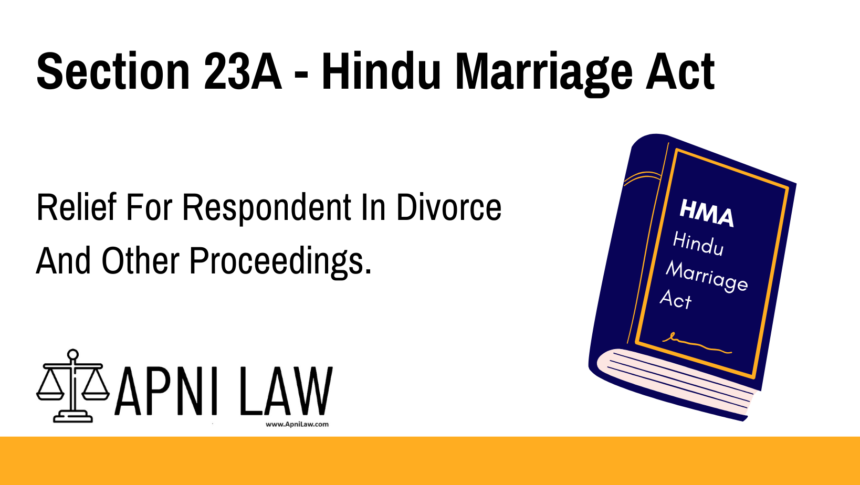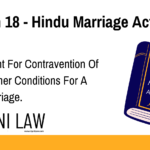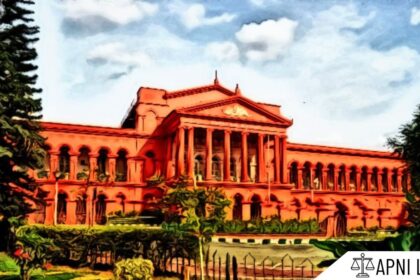Code: Section 23A – Hindu Marriage Act, 1955
❝Section 23A – Relief for respondent in divorce and other proceedings.—
In any proceeding for divorce or judicial separation or restitution of conjugal rights, the respondent may not only oppose the relief sought on the ground of petitioner’s adultery, cruelty or desertion, but also make a counter-claim for any relief under this Act on that ground; and if the petitioner’s adultery, cruelty or desertion is proved, the court may give to the respondent any relief under this Act to which he or she would have been entitled if he or she had presented a petition seeking such relief on that ground.❞
Explanation of Section 23A – Hindu Marriage Act
Section 23A of the Hindu Marriage Act, 1955 introduces a critical procedural right for the respondent in matrimonial cases. It empowers the respondent to not only defend against the claims made by the petitioner but also to file a counter-claim seeking relief under the Act on grounds such as adultery, cruelty, or desertion.
This provision allows the court to grant appropriate relief to the respondent—even if they did not initiate the case—if sufficient evidence is provided to support the claims.
Key Points:
- Applicable in cases of divorce, judicial separation, and restitution of conjugal rights.
- The respondent can allege grounds like adultery, cruelty, or desertion against the petitioner.
- A counter-claim can result in relief being granted to the respondent (e.g., divorce or separation).
- The court treats such counter-claims as if the respondent had originally filed the petition.
Illustration
Example 1: Wife Opposing Divorce and Filing Counter-Claim
A husband files a petition seeking restitution of conjugal rights. The wife opposes the petition by alleging that the husband is guilty of cruelty and adultery. Under Section 23A, she can file a counter-claim seeking divorce. If her allegations are proved, the court may grant her a divorce decree even though she did not initiate the proceedings.
Example 2: Respondent Granted Relief
A wife files for judicial separation. The husband, as a respondent, submits evidence of the wife’s desertion and cruelty. He uses Section 23A to file a counter-claim seeking divorce. Upon proving his claims, the court grants him a divorce despite being the respondent.
Common Questions and Answers on Section 23A – Hindu Marriage Act
1. What is a counter-claim under Section 23A?
A counter-claim allows the respondent in a matrimonial case to seek relief against the petitioner on grounds such as adultery, cruelty, or desertion, rather than merely opposing the petition.
2. Can a respondent get a divorce through a counter-claim?
Yes. If the respondent proves that the petitioner is guilty of matrimonial misconduct, the court can grant divorce or other relief, even if the respondent did not file the original petition.
3. Is Section 23A applicable in mutual consent divorce cases?
No. Section 23A is specifically applicable in contested cases like divorce, judicial separation, or restitution of conjugal rights—not in mutual consent divorces under Section 13B.
4. Does the respondent need to file a separate petition?
No. Under Section 23A, the respondent may file a counter-claim within the same proceeding without initiating a separate case.
5. What grounds can be used for a counter-claim?
The grounds must relate to matrimonial offenses such as adultery, cruelty, or desertion, which are otherwise grounds for relief under the Hindu Marriage Act.
Conclusion
Section 23A of the Hindu Marriage Act is a vital safeguard for respondents in matrimonial litigation. It ensures that justice is not denied merely because a party did not initiate proceedings. By allowing counter-claims, the law maintains balance and fairness in family court proceedings.
Whether you’re a petitioner or a respondent, understanding your rights under Section 23A is essential. For legal assistance in matrimonial disputes, consult the experts at ApniLaw.








